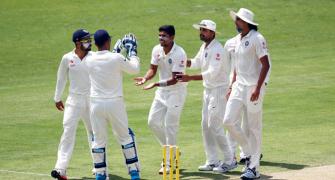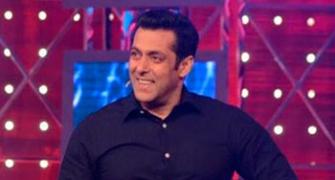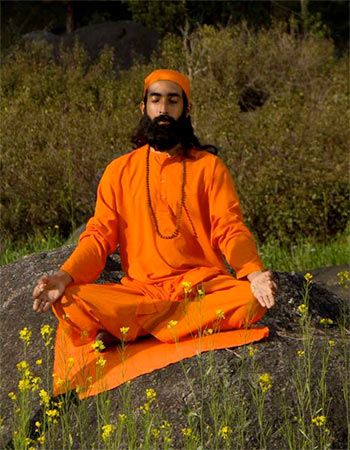
'I didn’t want the biopic on Swami Chinmayananda to be a propaganda film,' filmmaker R S Prasanna tells Shobha Warrier/ Rediff.com
Engineer-turned-filmmaker R S Prasanna made his mark in Tamil with his very first romcom Kalyana Samayal Saadham.
His next film is a biopic on Swami Chinmayananda titled The Quest, in English. Noted art director Thota Tharani acts in a film for the first time as the elderly Swami Chinmayananda.
In this interview with Shobha Warrier/ Rediff.com, Prasanna talks about the idea of making a film on Swami Chinmayananda.
After making a film like Kalyana Samayal Saadham, how did a film on a spiritual leader like Swami Chinmayananda happen?
Filmmakers like Steven Spielberg have been unpredictable in the kind of films they have made. I also want to surprise the audience by making a film that is completely different from what I have made earlier.
This is my first English film; I have always wanted to make good Indian English films.
I was a student of the Chinmaya Vidyalaya but I was never active with the Chinmaya Mission.
While coming to India from USA after doing the sound of my first film at the Warner Bros studio, I had a stopover at Hong Kong. The Chinmaya Mission office was next to where we stayed and I decided to go there and take Swamiji’s blessings as my first film was going to be released.
When he came to know about this, he asked, ‘You are a student of the Chinmaya Vidyalaya and a filmmaker, and we are making a film on Swamiji to commemorate the 100th birth anniversary of Swami Chinmayananda. Why don’t you meet Swami Mitrananda who is in Chennai?"
Are you spiritually inclined?
I am an areligious guy. In fact, it is that aspect I have tried to bring out in this film.
When I met Nityananda Swamiji, I found a scientific and very modern lover of world cinema.
As a student at the Chinmaya Vidyalaya, had you read Swami Chinmayananda’s philosophy? Were you impressed?
Until I started making this film, I had no knowledge of his life story. I was riveted by Swamiji’s speeches as a 10th standard student though spiritualism was the last thing that impresses a 14-year-old.
Swami Chinamayananda was the superstar or Rajinikanth of spiritualism. It is this aspect of his persona that I wanted to show in the film.
Is the film a biopic or a documentary or a fictionalised version of his life?
It is a proper biopic, a full-length feature film like the films made on Gandhi, Ramanujan, Periyar, etc.
My team and I went through his entire life and developed a story that was two-three hours long. I edited it into a crisp screenplay.
We went to all the places he went to. Making a biopic is an immense challenge.
Here is a Gurudev who influences lakhs and lakhs of people and I had to think how I should approach his life. So I went into an inner journey myself.
To get an actor to play the Swami must have been a challenge…
Yes, we have two actors who play Swami -- one plays the younger swami which occupies 80 per cent of the film. The young Swami is played by Sandeep, who is a monk himself.
He was undergoing training at Chinmaya Mission and he looked exactly like Swamiji. Swami Mitrananda had already spotted him and asked me to meet him. I found that he was at the exact zone, exact age, where Swamiji was at that time.
Swamiji also transformed from an ordinary man to a man who chose the path of spiritualism. Sandeep also was learning to be a monk after working as a modern IT professional in various parts of the world.
I thought here is a guy who looks exactly like Swamiji, but can he act? Then, we did a couple of workshops with him.
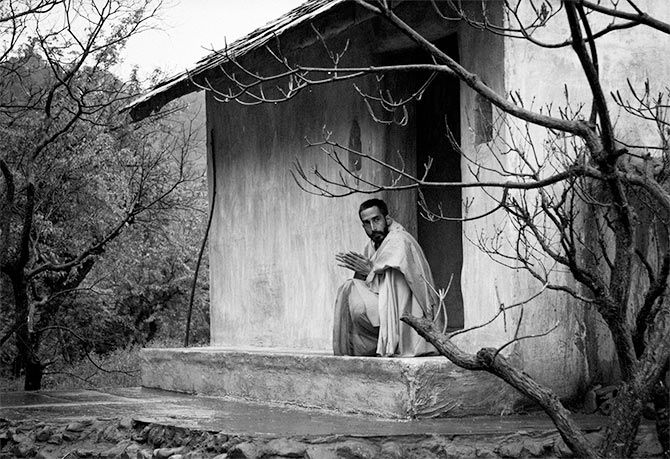
What was his reaction when you asked him to play Swami Chinmayananda?
He was very reticent at first. I could understand his trepidation. When he was moving away from an ordinary man’s life, the film may bring the world’s attention to him, which he didn’t want.
We managed to convince him by telling him that he was destined to play Swamiji.
After that, he submitted completely to the project. He did the workshops and travelled all across India.
Where does the story start?
The film starts with Swamiji as Balakrishna Menon (Swami Chinmayananda’s real name) working as a spy in the British Army.
When he worked for the independence of the country, he was captured and beaten up by the British. All this is shown in the film.
Are you presenting his life in a linear fashion?
No, we have written the screenplay in a very interesting, entertaining way.
Did you take liberties with the events in his life, or did you stick to exactly what happened?
I admit I handled the project very delicately. I am only a sutradhar or narrator of this film. It is not my story but the story of a great man whom many respect. I involved experts at the Chinmaya Mission at every stage of filmmaking.
In a biopic, the spirit of the character should come through. I took a call only in the aspect of filmmaking.
For some 20 per cent of the film, we had to resort to our imagination. For example, there is no recorded history of what transpired between him and the British when he worked as a spy. We had to use our imagination to create those scenes and write the dialogues.
Luckily, most part of his life as a Swami is well recorded and well archived by the Mission.
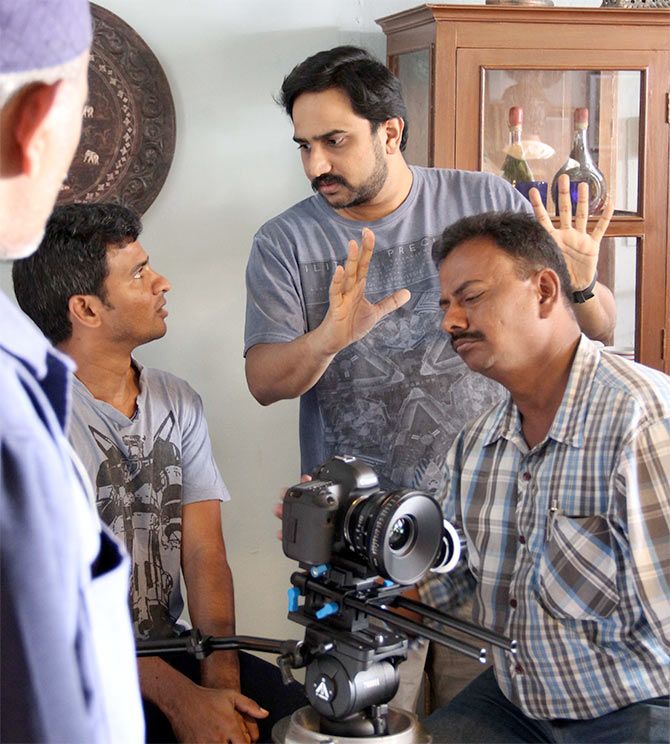
How much liberty did you take as the sutradhar?
I must thank the mission for giving me so much freedom to depict Swamiji as a person. I didn’t want this to be a propaganda film.
I approached the person with an open mind but I knew I was making a film on such an inspiring personality.
I didn’t want this to be a preachy film. I wanted it to be a visual journey. I wanted to visualise his mind.
Was it interesting to go deep into his mind?
It was fascinating. After making a film like Kalyana Samayal Saadham, it was like a dip in the Ganges for me!
My mother was quite angry with me for making KSS. So I told her, this film is for you and she was very happy.
Was it Chinmaya Mission’s idea to make the film in English?
Yes. Swamiji was very well versed in English, and his English discourses all over the world are very famous.
Also, he has a huge following all across India and the world, so it was important that we made the film in English.

